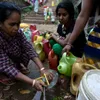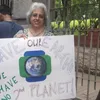How Paul Newman’s Safe Water Network is giving over 3 lakh individuals access to pure drinking water
Launched in 2010, the Safe Water Network (SWN) has impacted more than 300 communities in India and Ghana.
According to the United Nations World Water Development report 2019, over two billion people across the world experience high water stress, and about four billion people experience severe water scarcity during at least one month of the year.
Even in India, the numbers are alarming as nearly 100 million people lack access to safe water.
Global water demand is expected to continue increasing at a similar rate until 2050, accounting for an increase of 20-30 percent above the current level of water use, mainly due to rising demand from the domestic and industrial sectors.
To bridge this gap and empower communities to own and manage safe drinking water stations, the Safe Water Network (SWN), India, was launched in 2010. The NGO was co-founded by late actor and philanthropist, Paul Newman, in 2006 in the US, along with other civic and business leaders. In India, the Safe Water Network is a liaison office of the Safe Water Network, USA, and is located in New Delhi.
Apart from working with communities in India, the organisation also works with the citizens of Ghana, where 23 million people lack access to safe water.
The journey so far
Safe Water Network’s mission is to develop and demonstrate affordable, economically viable solutions, to share sector knowledge, and to build partnerships in order to benefit the millions in need.
The mission is to provide affordable safe drinking water to communities in a social franchise manner, training and capacity building through a set of rules and procedures and the core motive is to support policies and advocacy with the government.
The organisation, which has been working with communities both in India and Ghana, has provided more than a million people access to safe drinking water. It has also provided training tools and support to ensure the system can be easily managed and operated locally.
Safe Water Network, India, was initially funded by Navajbai Ratan Tata Trust, Pentair Foundation, Merck Foundation, PepsiCo Foundation, and Underwriters Laboratories. Later, others such as Honeywell Foundation joined to support the programme and became a major donoras as part of its CSR initiative. Besides this, other companies include Oracle and Macquarie.
The India team includes a diverse cross-section of technical, financial, health, and development expertise. It is led by Ravindra Sewak, who is the country director, and Poonam Sewak, the Vice President.

Poonam Sewak, Vice President of Safe Water Network, India.
“Our team of local water experts began laying the groundwork for an approach to develop community capability to own and manage Safe Water Stations. Today, our country teams oversee field initiatives, host forums and workshops, as well as produce publications and research about our work. An esteemed international board comprising leading water authorities and business leaders contributes to an increasingly influential organisation focused on empowering communities around the world to overcome the challenges to local sustainability,”the SWN team says.
The iJal model
The Safe Water Network started the iJal ‘My Water’ model to address issues such as water and sanitation-related illnesses, which accounts for 70 to 80 percent of the diseases in India. This social enterprise model aims to increase and sustain the demand for safe water in India.
The team claims that following this all safe water stations in India are now branded with the iJal symbol. It was first launched in Telangana, and the surrounding villages have greatly benefitted from this.
“Every person has their own version or definition of my water, hence the name iJal,” says Poonam.
According to a study conducted by SWF, nearly 75 percent of India’s surface water is polluted by human, animal, agricultural, and industrial waste. Even groundwater has high levels of fluoride, which leads to contamination.
The progress towards addressing these issues is often hampered by poor execution and lack of support at the local level. Thus, many of India’s rural water systems fail because of issues surrounding source sustainability and water quality.
“It is imperative to have citizens drink water from the same well that our ancestors drank water from. We have been fortunate enough to get support from the local and state governments,” says Poonam.
How it works?
Each safe water station by SWN aims to deliver reliable and affordable safe drinking water. Some of the key aspects of the model include locally sourced water, treatment technology, local operator, active consumer base, and maintenance reserves.
SWN aims to locally-source water to ensure each safe water station draws water from local rivers, ponds, and lakes. Through educational programmes and marketing campaigns, it also ensures communities are trained to effectively manage water for the future generations.
SWN follows a remote monitoring system as well as a six-step water treatment procedure to examine each community’s water sources. It also identifies what the possible contaminants are, and creates solutions to address these problems. Through low-cost technology, they are able to identify the specific contaminants that are plaguing the community, and help eradicate these contaminants.

Safe Water Network also provides local operators with the necessary skills to operate and manage safe water stations. They provide them with tools and tips on how to train the rest of the community. Through maintenance reserves, water is then sold to the communities in India and Ghana at an affordable price.
Poonam says people from rural communities who need water are seen as consumers and not beneficiaries.
Impact and future plans
Today, with its unique efforts, Safe Water Network has made quite an impact in India as well as on the international front. Working mainly in the US, Ghana, and India, it has managed to create a significant change in the states of Maharashtra, Western UP, and Telangana.
In India, SWN has helped over 300 communities. It has worked with many citizens across three states to provide best quality drinking water. Poonam says over 10,00,000 individuals have been given access to clean drinking water in a cost-effective manner. Their major focus right now is to reach more individuals through expansion and model replication so that the future generations will be secure.
“Towards scaling the programme and capacity building within communities is extremely necessary. We wish to partner with more local developers on building more water treatment plants. I dream of a world where we have world-class drinking water facilities like Aquafina for all citizens and communities to drink,” Poonam says.
(Edited by Megha Reddy)









